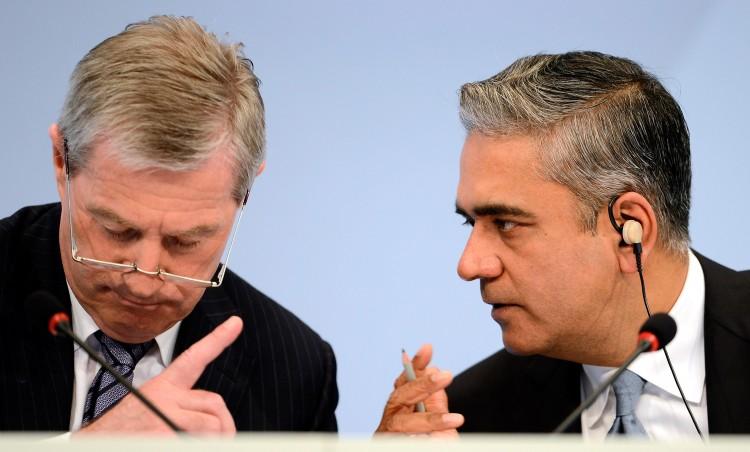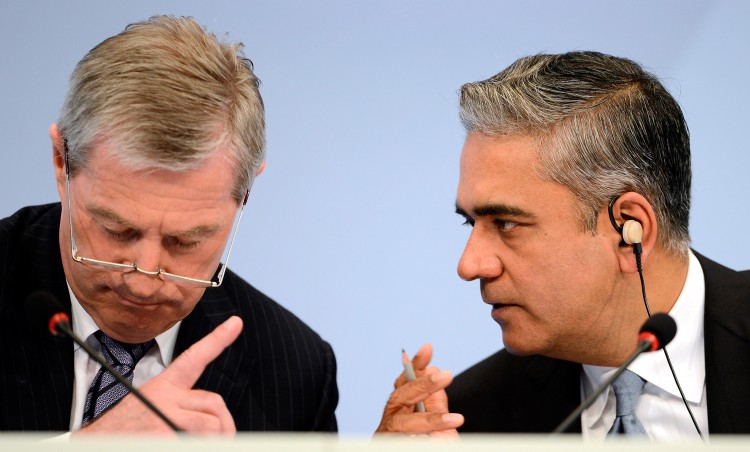Deutsche Bank AG, Germany’s largest bank, reported worse than expected fourth quarter results Jan. 31. The reasons for the $3.5 billion pre-tax loss were extraordinarily large write-downs and provisions for legal expenses.
“Our reported results reflect a number of decisions we took in the fourth quarter. We have clearly communicated our commitment to taking determined but tough decisions, in order to deal with past issues head-on, and prepare Deutsche Bank for the future,” said Co-CEO Anshu Jain.
Given several scandals and a plan to reshape the bank until 2015, it is likely that the management decided to “kitchen sink” the fourth quarter of 2012 to start with a clean sheet in 2013. The Co-CEOs Jürgen Fitschen and Anshu Jain took over from previous CEO Josef Ackermann last summer and were soon facing an uphill battle.






